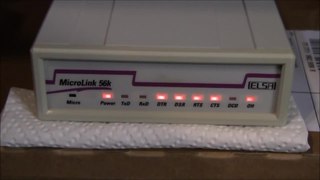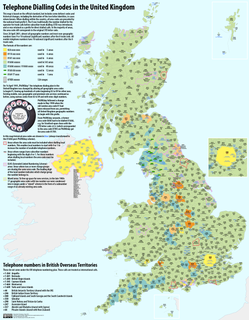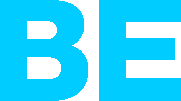Related Research Articles
Local loop unbundling is the regulatory process of allowing multiple telecommunications operators to use connections from the telephone exchange to the customer's premises. The physical wire connection between the local exchange and the customer is known as a "local loop", and is owned by the incumbent local exchange carrier. To increase competition, other providers are granted unbundled access.

Dial-up Internet access is a form of Internet access that uses the facilities of the public switched telephone network (PSTN) to establish a connection to an Internet service provider (ISP) by dialing a telephone number on a conventional telephone line. Dial-up connections use modems to decode audio signals into data to send to a router or computer, and to encode signals from the latter two devices to send to another modem.

Pipex was the United Kingdom's first commercial Internet service provider (ISP). It was formed in 1990 and helped to develop the ISP market in the UK. In 1992 it began operating a 64k transatlantic leased line and built a connection to the UK government's JANET network. One of its first customers was Demon Internet which popularised dial up modem based internet access in the UK. It was also one of the key players in the development of the London Internet Exchange through a meeting with BT in 1994.

Daisy Group Limited is a British company that sells Internet and telecommunications services, including internet hosting, broadband Internet connections, and VOIP.
Telephone slamming is an illegal telecommunications practice, in which a subscriber's telephone service is changed without their consent. Slamming became a more visible issue after the deregulation of the telecommunications industry in the mid-1980s, especially after several price wars between the major telecommunications companies. The term slamming was coined by Mick Ahearn, who was a consumer marketing manager at AT&T in September 1987. The inspiration for the term came from the ease at which a competitor could switch a customer's service away from AT&T by falsely notifying a telephone company that an AT&T customer had elected to switch to their service. This process gave AT&T's competitors a "slam dunk" method for the unauthorized switching of a customer's long-distance service. The term slamming became an industry standard term for this practice.

Telephone numbers in the United Kingdom are administered by the Office of Communications (Ofcom). For this purpose, Ofcom established a telephone numbering plan, known as the National Telephone Numbering Plan, which is the system for assigning telephone numbers to subscriber stations.
KCOM Group is a UK communications and IT services provider. Its headquarters are in the city of Kingston upon Hull, a unitary authority in the ceremonial county of the East Riding of Yorkshire, and it serves local residents and businesses with Internet and telephony services. It was listed on the London Stock Exchange but is now privately owned by Macquarie Group.

Plusnet plc is a British triple play internet service provider (ISP); providing broadband, landline and mobile services. The company was founded in 1997 in Sheffield, England, and became a public limited company (plc) in July 2004 when it was floated on the Alternative Investment Market. On 30 January 2007, Plusnet was acquired by BT Group, but it continues to operate as a separate business. By December 2013, it had over 750,000 customers across the UK.

Be Unlimited was an Internet service provider in the United Kingdom between 2004 and 2014. Initially founded as an independent company by Boris Ivanovic and Dana Tobak in 2005, it was bought by Spanish group Telefónica Europe in 2006 before being sold on to BSkyB in March 2013 in an agreement which saw BSkyB buy the fixed telephone line and broadband business of Telefónica Europe which at the time traded under the O2 and BE brands. The deal saw BSkyB agree to pay £180 million initially, followed by a further £20 million after all customers had been transferred to Sky's existing business. The sale was subject to regulatory approval in April 2013, and was subsequently approved by the Office of Fair Trading on 16 May 2013.

Virgin Media is a British telecommunications company which provides telephone, television and internet services in the United Kingdom. Its headquarters are at Green Park in Reading, England. It is owned by Virgin Media O2, a 50:50 joint venture between Liberty Global and Telefónica.
Porting Authorization Code (PAC) is a unique identifier used by some mobile network operators to facilitate mobile number portability (MNP). This allows users to retain their mobile telephone number when switching operators.
Openreach Limited is a company wholly owned by BT Group plc, that maintains the telephone cables, ducts, cabinets and exchanges that connect nearly all homes and businesses in the United Kingdom to the national broadband and telephone network. It was established in 2006 following an agreement between BT and the UK's telecoms regulator, Ofcom, to implement certain undertakings, pursuant to the Enterprise Act 2002, to ensure that rival telecom operators have equality of access to BT's local network.
Sky Broadband is a broadband service offered by Sky UK in the United Kingdom. With the introduction of Sky Fibre, Sky Broadband now refers to ADSL broadband products.

The United Kingdom has been involved with the Internet throughout its origins and development. The telecommunications infrastructure in the United Kingdom provides Internet access to businesses and home users in various forms, including fibre, cable, DSL, wireless and mobile.
TalkTalk Telecom Group plc is a company which provides pay television and Internet access services to businesses and consumers in the United Kingdom. It was founded in 2003 as a subsidiary of Carphone Warehouse and was demerged as a standalone company in March 2010. Its headquarters are in Salford.

BT Consumer is the main retail division of United Kingdom telecommunications company BT Group that provides fixed-line, mobile, broadband and digital television to consumers in the UK. It buys access to some of these services from BT's other divisions: Openreach and EE. It is the largest consumer fixed-line and broadband ISP in the UK.
The Broadband Stakeholder Group is the UK government's advisory body on broadband. Created in 2001 by then Minister for E-Commerce and Competitiveness Stephen Timms, it provides a neutral forum for organisations across the converging broadband value-chain to discuss and resolve key policy, regulatory and commercial issues, with the ultimate aim of helping to create a strong and competitive UK knowledge economy.
Giffgaff is marketed as a lower cost mobile phone flanker brand of Telefónica UK, and was launched on 25 November 2009.
BT Superfast Fibre is a broadband service in the United Kingdom provided by BT Consumer, the consumer sales arm of the BT Group. The underlying network is fibre-to-the-cabinet (FTTC), which uses optical fibre for all except the final few hundred metres (yards) to the consumer, and delivers claimed download speeds of "up to 76 Mbit/s" and upload speeds of "up to 19 Mbit/s" depending on package selected. The fibre terminates in a new roadside cabinet containing a DSLAM, from where the final connection to the customer uses VDSL2 technology.
The precise number of websites blocked in the United Kingdom is unknown. Blocking techniques vary from one Internet service provider (ISP) to another with some sites or specific URLs blocked by some ISPs and not others. Websites and services are blocked using a combination of data feeds from private content-control technology companies, government agencies, NGOs, court orders in conjunction with the service administrators who may or may not have the power to unblock, additionally block, appeal or recategorise blocked content.
References
- ↑ "Help with your account – Help & Support – Plusnet". www.plus.net.
- ↑ "TalkTalk Broadband - MAC Code Frequently Asked Questions". Archived from the original on 6 September 2006. Retrieved 14 May 2007.
- ↑ "Latest Topics – ZDNet". ZDNet. Archived from the original on 25 January 2007. Retrieved 14 May 2007.
- ↑ "Easier broadband switching from tomorrow". Ofcom. 20 September 2016.
- ↑ http://consumers.ofcom.org.uk/codes-of-practice/migrations-authorization-code-mac-broadband-migrations-process/%5B%5D
- ↑ "Archived copy" (PDF). Archived from the original (PDF) on 8 February 2009. Retrieved 23 January 2009.
{{cite web}}: CS1 maint: archived copy as title (link) - ↑ Jackson, Mark. "Ofcom Details Pipex Broadband Migration Failures : ISPreview UK News". www.ispreview.co.uk.
- ↑ "Ofcom learns lessons from Biscit fallout". The Register . Retrieved 22 June 2009.